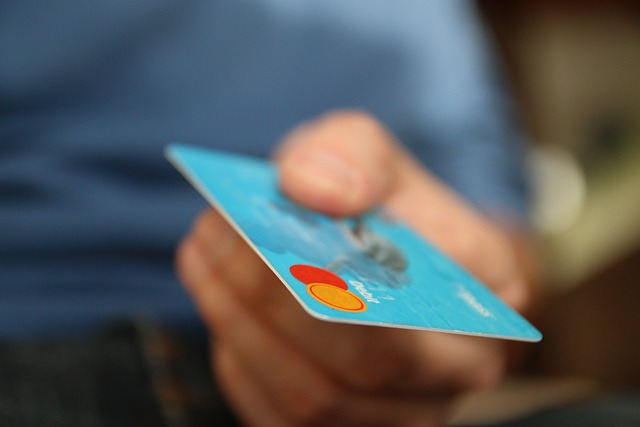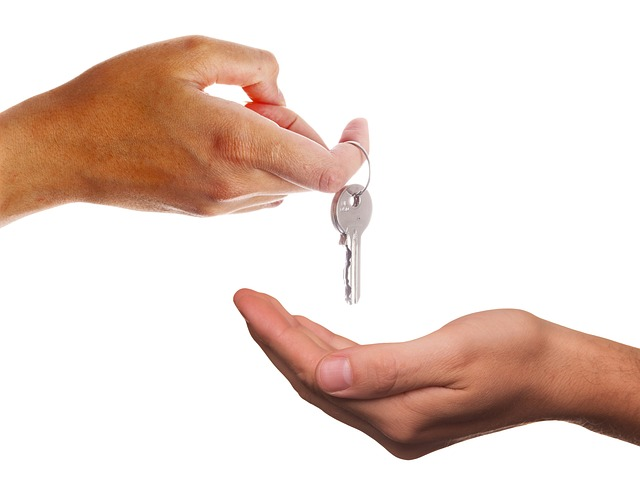Have you been daydreaming about owning your own house, lounging in your cozy living room, and proudly proclaiming, “This is MY home!” But then reality hits you like a ton of bricks (pun intended): you have no money to make that dream a reality.
Is it even possible to buy a house without a stack of cash? Buckle up, my friend, because we’re about to uncover the secrets of purchasing a house with no money down.
Now, let’s get one thing straight from the start. We’re not promising you some magical, overnight solution or a secret treasure map leading to a hidden pot of gold.
Instead, we’re here to explore alternative strategies, creative financing options, and clever hacks that can help turn your homeownership dreams into a tangible goal, even when your wallet seems as empty as a desert.
In this article, we’ll delve into various approaches and ideas that could potentially help you pave your way to homeownership without a substantial upfront payment. But before we dive into the nitty-gritty details, it’s crucial to assess your financial situation realistically. So, grab a cup of coffee, open your mind to new possibilities, and let’s explore the world of buying a house with no money!
Is it even possible?
Before we embark on this adventure, let’s demystify the concept of buying a house with no money. You might be wondering, “How is it even possible? Don’t I need a hefty down payment?” Well, yes and no.
Traditionally, purchasing a house involves a down payment, typically around 20% of the property’s value. This down payment serves as a security deposit, reassuring the lender that you’re committed to the investment. But what if you don’t have a stack of cash lying around? Does that mean your dreams of homeownership are crushed? Not necessarily!
Buying a house with no money down means finding alternative routes and creative financing options that can help you bypass the traditional down payment hurdle. It involves thinking outside the box, exploring unconventional strategies, and leveraging available resources to make your dreams come true.
This doesn’t mean that if you buy a house with no money, you will be free of any financial obligations. Instead it involves finding ways to reduce the initial upfront costs and seeking assistance or alternative arrangements to fulfill your homeownership aspirations. So, while the notion of purchasing a house without money may sound too good to be true, with the right approach and a sprinkle of determination, it can become a reality.
Assessing Your Financial Situation: Do You Really Have No Money?

Before we dive into the strategies for buying a house with no money down, let’s take a moment to assess your current financial situation. While the title of this article may suggest that you have absolutely no money to work with, it’s essential to examine your finances realistically.
Start by taking a comprehensive look at your income, expenses, and savings. Are there any funds that can be allocated towards a down payment, even if they’re not substantial? Remember, every dollar counts when it comes to purchasing a house.
Next, evaluate your spending habits and identify areas where you can cut back. Are there any unnecessary subscriptions, memberships, or expenses that you can eliminate or reduce? By tightening your belt and being mindful of your spending, you may be able to free up some funds that can contribute towards your home purchase.
Additionally, consider your credit score and financial history. Lenders often assess creditworthiness when evaluating loan applications. A higher credit score can increase your chances of securing favorable financing options and lower interest rates. If your credit score is less than stellar, focus on improving it by paying off debts, resolving any outstanding issues, and making timely payments.
Lastly, explore your existing assets and potential sources of assistance. Do you own any valuable assets that can be leveraged towards your down payment? Are there family members or friends who might be willing to provide financial support or act as co-buyers? Sometimes, having a strong support system can make all the difference in achieving your homeownership goals.
By taking a thorough look at your financial situation, you might discover that you have more resources available than initially thought. So, don’t lose hope just yet!
Creative Financing Options: Thinking Outside the Box
When it comes to buying a house with no money down, traditional financing methods may not be your only option. It’s time to get creative and think outside the box!
Here are some innovative financing strategies to consider:
Seller Financing
In certain cases, motivated sellers may be willing to finance the purchase themselves. With seller financing, you negotiate an agreement where the seller acts as the lender, allowing you to make monthly payments directly to them instead of a traditional mortgage lender. Knowing the seller beforehand can be an easier way to get this type of financing as it requires trust and rapport. This s also a great option to avoid other expenses such as closing costs.
Rent-to-Own
A rent-to-own agreement allows you to rent a property with the option to buy it later. A portion of your rent payments goes towards building equity, which can be used as a down payment when you decide to purchase the property.
Co-Buying or Partnerships
Consider teaming up with family members, friends, or trusted individuals to pool resources and buy a property together. By sharing the financial burden, you can collectively contribute towards the down payment and mortgage payments.
Government Programs
Explore government-backed programs designed to assist first-time homebuyers or individuals with limited financial resources. These programs may offer down payment assistance, grants, or low-interest loans to make homeownership more accessible.
By exploring these creative financing avenues, you can find opportunities to break free from the constraints of a traditional down payment.
Building Credit and Improving Financial Profile

When aiming to buy a house with no money down, having a strong financial profile and a healthy credit score can significantly enhance your chances of securing favorable financing options. Here are some steps to take in order to build your credit and improve your financial standing:
Check and Monitor Your Credit
Start by obtaining a copy of your credit report from one of the major credit bureaus (Equifax, Experian, or TransUnion). Review it carefully for any errors, discrepancies, or negative items that need to be addressed. If there are any that you don’t agree with, you will need to get in touch with the institutions concerned to correct them. Regularly monitor your credit to stay updated on your score and track your progress.
Pay Bills on Time
Consistently make timely payments for all your debts, including credit cards, loans, and utilities. Late payments can have a negative impact on your credit score, so set up reminders or automatic payments to ensure you stay on track.
Reduce Debt
Work towards reducing your overall debt load, particularly high-interest credit card balances. Paying down debt demonstrates responsible financial behavior and can improve your debt-to-income ratio, making you a more attractive candidate for lenders.
Build a Positive Credit History
If you have limited credit history, consider opening a secured credit card or becoming an authorized user on someone else’s account to establish positive credit. Make small, regular purchases and pay them off in full each month to build a solid credit history.
Avoid New Credit Applications
While building credit is important, avoid opening multiple new credit accounts within a short period. Each application generates a hard inquiry on your credit report, which can temporarily lower your score. Instead, focus on maintaining and improving your existing accounts. So if you want to build a better credit score, make sure you get started at least 12 months before you look to purchase a property.
By actively working on improving your credit and financial profile, you enhance your credibility as a borrower and increase your chances of securing favorable loan terms. Remember, building credit takes time, so be patient and consistent in your efforts.
Exploring Government Programs and Assistance

When it comes to buying a house with no money down, government programs and assistance can be valuable resources to tap into.
Here are some key avenues to explore for low down payment mortgages and zero down payment mortgages:
FHA Loans
An FHA loan issued byThe Federal Housing Administration offers loans that require a low down payment, typically as low as 3.5% of the purchase price. These loans are accessible to borrowers with lower credit scores and can be a viable option for first-time homebuyers. This is one of the common types of low down payment loans.
USDA Loans
The United States Department of Agriculture provides loans specifically for rural homebuyers. These loans often offer 100% financing, meaning no down payment is required, as long as the property is located in a designated rural area.
VA Loans
If you are a veteran or an active-duty service member, you may be eligible for a VA loan through the Department of Veterans Affairs. These loans often come with favorable terms and can allow for no down payment or mortgage insurance requirements.
State and Local Programs
Many states and local municipalities offer homebuyer assistance programs, including down payment assistance grants, forgivable loans, or low-interest loans. Research programs specific to your area to see if you qualify for any financial assistance.
Non-Profit Organizations
Some non-profit organizations provide grants or loans to assist low-income individuals or first-time homebuyers. These programs can help bridge the gap between your available funds and the down payment required for a house.
Housing Counseling Agencies
Seek guidance from housing counseling agencies approved by the Department of Housing and Urban Development (HUD). These agencies offer educational resources, financial counseling, and assistance in navigating the homebuying process.
Remember to thoroughly research the requirements, eligibility criteria, and application processes for each program or assistance option you consider. Each program has its own set of guidelines and limitations, so ensure that you meet the necessary qualifications before pursuing them.
Partnering with Investors or Co-Buyers

When it comes to buying a house with no money down, partnering with investors or co-buyers can be a fruitful avenue to explore. By pooling resources and sharing the financial responsibility, you can increase your purchasing power and open doors to homeownership. Here’s how you can make it happen:
Family and Friends
Consider approaching family members or close friends who may be interested in investing in real estate or have the means to contribute to a down payment. Create a clear agreement outlining each party’s roles, responsibilities, and ownership stakes to avoid any misunderstandings.
Co-Buying Arrangement
Explore the possibility of buying a house with a co-buyer who will share the financial responsibility and ownership. This could be a friend, family member, or even a professional partner. Make sure to establish a legal agreement outlining the ownership structure, mortgage obligations, and exit strategies.
Joint Ventures
Partnering with an experienced real estate investor or developer through a joint venture can provide access to their expertise and resources. In this arrangement, your contribution may be in the form of sweat equity or other non-monetary resources, while the investor provides the necessary funding.
When entering into any partnership or co-buying arrangement, it’s essential to have clear communication, trust, and a comprehensive legal agreement in place. Define each party’s roles, financial obligations, and exit strategies to ensure a smooth and mutually beneficial partnership.
Rent-to-Own and Lease Purchase Options

If you’re looking for a path to homeownership with no money down, rent-to-own and lease purchase options can be game-changers. These arrangements provide an opportunity to rent a property with the potential to buy it later. Here’s how they work:
Rent-to-Own
In a rent-to-own agreement, you rent a property for a specified period with an option to purchase it at a later date. A portion of your monthly rent is typically credited towards the future purchase. This allows you to build equity over time while occupying the property.
Lease Purchase
A lease purchase arrangement is similar to rent-to-own but with a more binding commitment. You agree on a purchase price upfront and sign a lease contract that includes the obligation to buy the property within a specific time frame. This option provides more certainty but may require a larger upfront deposit or a higher monthly payment.
Both options provide an opportunity to save for a down payment while living in the property and give you time to improve your financial situation. Here are a few considerations when exploring rent-to-own or lease purchase options:
Contract Terms
Carefully review and understand the terms of the agreement, including the purchase price, rental credits, duration of the agreement, and any conditions or contingencies.
Property Evaluation
Have the property thoroughly inspected and assessed by professionals to ensure it meets your standards and is worth the eventual purchase price.
Rent-to-own and lease purchase options can be advantageous for those who are not yet ready for immediate homeownership but want to secure a future purchase.
Negotiating Seller Financing for No Money Down
When it comes to buying a house with no money down, negotiating seller financing can be a viable option. Seller financing involves the seller acting as the lender, allowing you to purchase the property without a traditional mortgage. Here’s how you can approach seller financing:
First, look for sellers who are motivated to sell their property quickly or are facing financial constraints. Motivated sellers may be more open to considering alternative financing arrangements.
Second, prepare a compelling case to present to the seller, emphasizing your ability to make regular payments, your commitment to homeownership, and any favorable terms you can offer. Show that you are a trustworthy buyer and explain why seller financing would benefit both parties.
Additionally, propose terms that are favorable to the seller, such as a higher purchase price, a higher interest rate, or a shorter repayment period. These terms can make seller financing more enticing for them and increase your chances of reaching an agreement.
Also, consider working with a real estate agent or attorney experienced in seller financing transactions. They can guide you through the negotiation process, help draft the agreement, and ensure all legal aspects are handled properly.
Just make sure you conduct thorough due diligence on the property, including inspections, title searches, and necessary legal checks. Be clear on the terms of the seller financing agreement, including interest rates, repayment schedules, and any contingencies.
Remember, seller financing is a negotiation process, and not all sellers may be willing to consider this option. Be prepared for potential rejections and explore other creative financing strategies if seller financing doesn’t work out.
Grants and Down Payment Assistance Programs
When buying a house with no money down, grants and down payment assistance programs can be invaluable resources. These programs provide financial support and help bridge the gap between your available funds and the required down payment. Here’s how you can take advantage of these opportunities:
Start by researching grants and down payment assistance programs available in your local area. Many state, county, and city governments offer these programs to help first-time homebuyers or individuals with limited financial resources. Check with your local housing authority or visit their website to find out about eligibility requirements and application processes.
Each program has specific eligibility criteria, such as income limits, credit score requirements, and property location restrictions. Review these criteria to determine if you qualify for any available programs.
Most assistance programs require documentation to verify your eligibility and financial situation. This may include income statements, bank statements, tax returns, and proof of employment. Gather these documents in advance to streamline the application process
Once you’ve identified suitable programs, submit your applications following the provided instructions. Pay attention to application deadlines and provide all requested information accurately to increase your chances of approval.
Some non-profit organizations, charities, or community development organizations offer grants or financial assistance for individuals seeking homeownership. Research such organizations in your area and inquire about any available programs or resources they offer.
Check with your employer to see if they have any homeownership assistance programs or partnerships with financial institutions that offer favorable financing options. Some employers may provide down payment assistance or grants as part of their benefits package.
By using grants and down payment assistance programs, you can significantly reduce the financial burden of purchasing a home with no money down. However, be prepared for potential limitations and competition, as these programs often have limited funding and high demand.
Bottom Line
Buying a house with no money doesn’t need to be completely impossible. There are many methods and resources that you can use to get together enough funds to make your home buying dreams a reality. So your dreams of avoiding a conventional loan can become true. .
You will definitely need patience and persistence, and bags of it. (If only it was possible to purchase a property with that alone!) So, make sure you remain realistic throughout the process.
We hope you enjoyed this article. For more about real estate browse the rest of our site.
